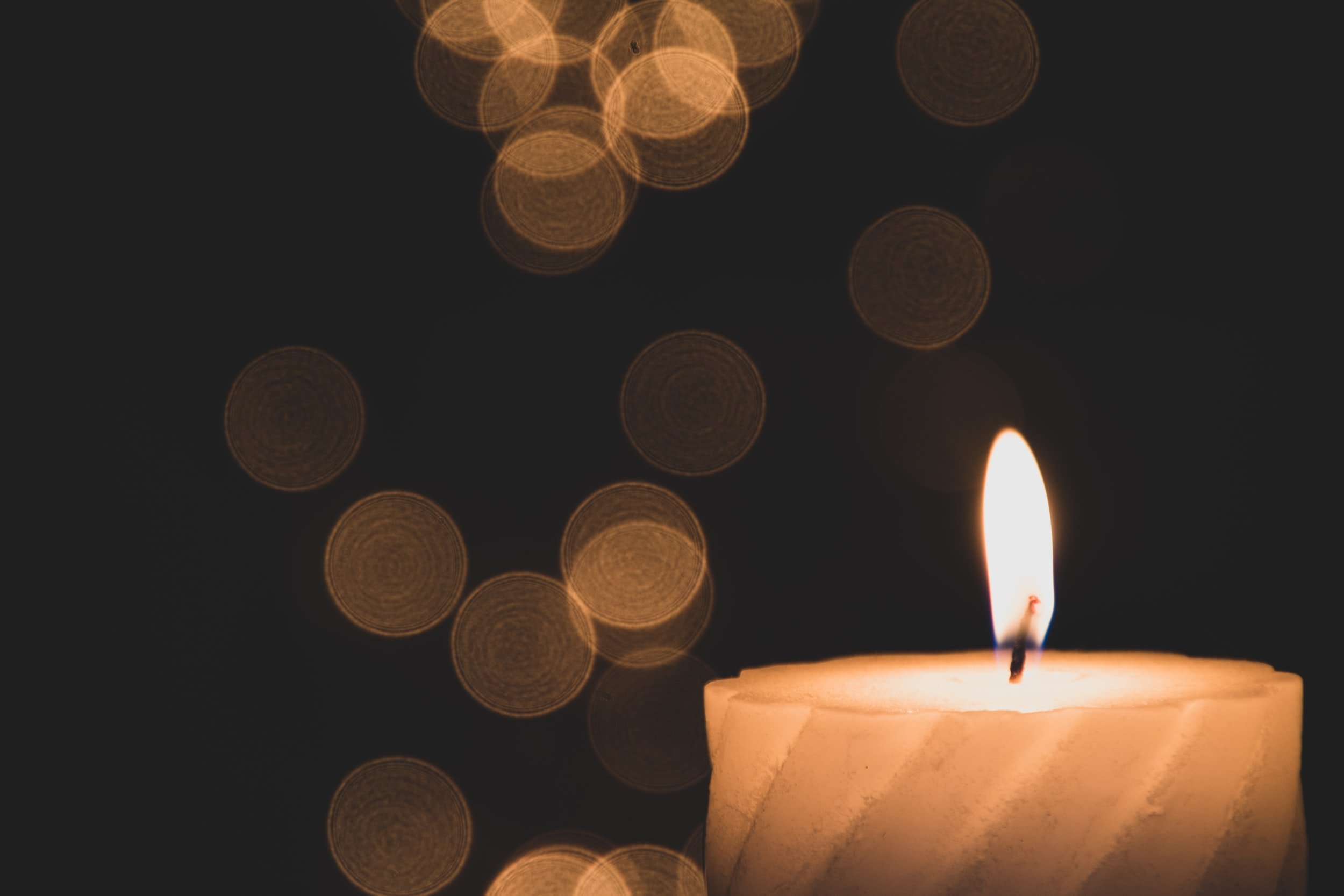Darkness and Light
/What does it mean to rise from the dead? The disciples asked this same question as Jesus predicted his passion, death, and resurrection several times along the way. They didn’t seem to take his predictions to heart, though, since Jesus’s suffering and death seemed to take them by surprise. We know the story, so we’re not surprised, and yet, I have that same question: what does it mean to rise from the dead? And does rising from the dead erase the sorrow of the past few days, as if the trauma of the crucifixion never happened?
We’ve moved through the high drama of this past week, entering in and examining it from every angle. We may have felt the confusion, dismay, and grief of those close to Jesus. We may have entered into Jesus’s own experiences — his last moments with loved ones, his doubts and fears, his betrayal, trial, and execution.
And then — what? Then we have this weird time on Holy Saturday when we know Jesus is crucified and lying dead in the tomb, and that, at some point, he’ll be resurrected. I’ve often wondered about that space between death and resurrection. What do you do on Saturday before Easter? Since I go to the Easter Vigil Mass, which begins after the sun goes down, I have a nice long Saturday to think about this liminal space. I often take a little disco nap, just so I can be present during the service, but how do I pray into that liminal day? I’m not sure how to do it, except to acknowledge that it is, in fact, a liminal space, a time of neither here nor there, of neither death nor resurrection. It’s a waiting time, a hopeful space, an anticipation of coming light but also a dark night. Even though I know what’s going to happen, it feels uncertain and a little disorienting.
And then we ease into the joy of resurrection. Some Christian churches, including the Catholic Church, have adopted the Jewish tradition of beginning a celebration the night before, and so we keep vigil the night before Easter. Especially on this feast, we’re aware of darkness and light, and we allow them to help us hold this movement from death to life and even to play their own part in the celebration. We begin with a fire — yes, an actual fire. We bless the fire and light a candle from it, and that flame leads us into the dark church as we sing a refrain about Christ’s light. We hope for that light; we long for it. There’s a little confusion, maybe a little whispering and muffled laughter, as we try to find our places in the dark church. We each have a little candle, and as we share the flame with each other, from wick to wick, candle to candle, the community together holds a bit of Christ’s light.
We wait together. As we wait, we listen to salvation history proclaimed through the Hebrew Scriptures. These readings remind us that God has always been with us, in darkness and in light, from enslavement to freedom, through our exile and in our return, and from death to life. We sit in silence, we listen, and we sing our responses. And then we listen to the reading to the Romans which says, “Are you unaware that we who were baptized into Christ Jesus were baptized into his death? We were indeed buried with him through baptism into death, so that, just as Christ was raised from the dead by the glory of God, we too might live in newness of life.”
We’re reminded that this is not just about Jesus. Christ’s death and resurrection is of cosmic significance, and it’s about us, too. We also die and rise, each year through this season, and through each season of our lives. Our whole lives are a cycle of dying and rising, suffering and joy, and also those liminal spaces in between. Our lives are Christ’s life, and Christ lives in us, and so we’re there together celebrating the darkness and light in humanity and in ourselves. And we feel this, praying there together, as Easter dawns and the lights come on and the bells ring. We’re kind of dazzled by the sudden joy and light around us.
So, again, what does it mean to rise from the dead? Does it erase the suffering of the past or present? Does rising from the dead mean that suffering didn’t happen? I’m sure it doesn’t mean that. We’re actually meant to see the whole of the passion, the entirety of Christ’s suffering, death, and resurrection, as one story, one long movement from darkness into light. The church services over these days are really one long prayer experience, and each moment is meant to be held in light of the whole. So, we hold death and resurrection in the context of the whole of salvation history, for all people in all times, and for ourselves personally.
Darkness and light are neither good nor bad; they’re both parts of the whole. We can’t consider suffering apart from resurrection, and we can only enter into resurrection joy while bearing in mind the experience of suffering. Actually, we see this dynamic reflected in the resurrected body of Christ. Scripture accounts tell us that when Christ appeared to his disciples, he still bore the scars of crucifixion. That’s how his loved ones knew it was him. Rising from the dead doesn’t cancel out death. Instead, it helps us to navigate the mystery of death, and also to live our lives with joy amidst sorrow.
The Paschal Mystery reminds me that all life experiences belong. During hard times, I tend to think, “This shouldn’t be happening; maybe life should be easier and I’m doing it wrong.” But that’s not so. Suffering is part of life. To be sure, some of my suffering comes from my own head, my doubts and fears and resentments and worries, but that doesn’t make it less real. Sometimes I make choices that bring on my own suffering and sometimes painful things just happen, but either way, I’m not alone. Despite my mistakes and brokenness, God is still with me. Because the thing is, God knows that we’re all caught in the ups and downs of life, that we bear our scars and brokenness even as we experience joy. And we know that as we live this life of darkness and light, God is deeply with us.
So, what Easter means to me is that God is present with me, with us, through all of life, the moments that feel like death and the moments that feel like resurrection. Life is a mix of experiences, and each piece of it belongs. And we belong to Christ. Are you unaware that we who were baptized into Christ Jesus were baptized into his death and resurrection? No, we are aware. Christ is with us in darkness and light. Thanks be to God.
For Reflection:
Where is the darkness and light in your own life right now?
Given what’s happening in your life now, which parts of the story resonate with you? What is it about these parts of the story that touch you so deeply?
Maybe you could take some time with God to see what God has to say about this story, about your life, about your relationship with God.
By Sister Leslie Keener, CDP
Sister Leslie Keener, CDP is the director of God Space, a community-building spirituality ministry in Cincinnati and Northern Kentucky. She’s a Sister of Divine Providence with a Masters in Ministry and a Certificate in Spiritual Direction and Retreats from Creighton University. She directs retreats, meets with people for spiritual direction, and serves as the vocation director for her community. She also serves on the Board of Spiritual Directors International. She enjoys music, meaningful conversations, and seeking God in all things.



